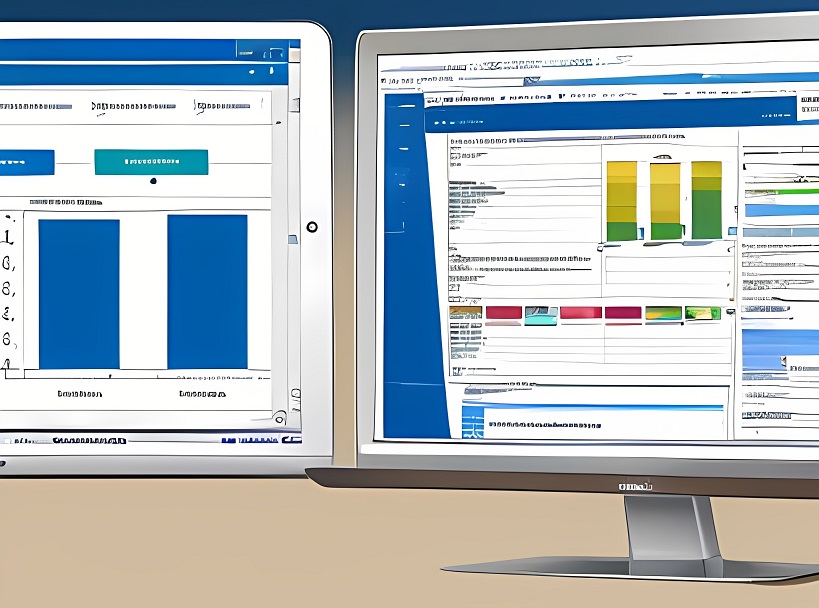CFO: Guardian of Corporate Finance
The CFO is one of the important leaders and decision-makers of an enterprise and is responsible for the enterprise's financial management, capital operations, investment and financing decisions, etc. They are the financial stewards of the enterprise and need to ensure that the financial status of the enterprise is healthy and stable, and provide strong financial support for the strategic development of the enterprise. The CFO needs to formulate the company's financial management strategy, including financial planning, budget formulation, cost control and other aspects of work. They need to ensure that the company's financial management complies with regulatory requirements while providing financial security for the company's strategic development. The CFO is responsible for the enterprise's risk management, including financial risks, market risks, operational risks, etc. They need to be able to effectively organize and coordinate the company's financial resources to ensure the smooth progress of financial management. They need to promptly adjust the company's financial management strategy and investment direction according to changes in the market environment to create greater returns for the company.

With the development of the economy and the intensification of market competition, financial management has become increasingly important in modern enterprises. As the guardian of corporate finances, the role and responsibilities of the chief financial officer (CFO) continue to evolve. This article will explore the status and responsibilities of the CFO in the enterprise and how to become an excellent CFO.
1. The status and responsibilities of the CFO
The CFO is one of the important leaders and decision-makers of an enterprise and is responsible for the enterprise's financial management, capital operations, investment and financing decisions, etc. They are the financial stewards of the enterprise and need to ensure that the financial status of the enterprise is healthy and stable, and provide strong financial support for the strategic development of the enterprise.
Specifically, the responsibilities of the CFO include the following aspects:
1. Formulate and implement financial management strategies: The CFO needs to formulate the company's financial management strategies, including financial planning, budget formulation, cost control, etc. They need to ensure that the company's financial management complies with regulatory requirements while providing financial security for the company's strategic development.2. Fund operation management: The CFO is responsible for the company's fund raising, allocation and use. They need to establish good cooperative relationships with financial institutions, raise necessary funds for enterprises, and ensure the effective use and return of funds.

3. Investment decision-making: The CFO is responsible for the company’s investment decisions, including internal investment and external investment. They need to evaluate the risks and benefits of investment projects based on the company's strategic planning and market environment, and make scientific and reasonable investment decisions for the company.4. Risk management: The CFO is responsible for the enterprise's risk management, including financial risks, market risks, operational risks, etc. They need to establish a complete risk management system, formulate risk prevention and control measures, and reduce the company's risk exposure.5. Internal audit and compliance: The CFO is responsible for the company's internal audit and compliance work. They need to ensure that the company's financial management complies with regulatory requirements, while establishing an effective internal control system to prevent and correct financial fraud and irregularities.2. How to become an excellent CFO
Becoming an excellent CFO requires multiple qualities and abilities, as follows:
1. Deep professional knowledge: As a CFO, you need to have extensive professional knowledge in finance, accounting, taxation, etc., and understand all aspects and details of corporate financial management. At the same time, they also need to understand the dynamics of the market, industry and competitors, and formulate reasonable financial management strategies for the enterprise.2. Excellent management capabilities: CFOs need to have excellent management capabilities, including team management, time management, communication and coordination, etc. They need to be able to effectively organize and coordinate the company's financial resources to ensure the smooth progress of financial management. At the same time, they also need to establish good cooperative relationships with various departments and stakeholders to create greater value for the enterprise.

3. Keen market insight: CFOs need to have keen market insight and understand the dynamics and development trends of the market and industry. They need to promptly adjust the company's financial management strategy and investment direction according to changes in the market environment to create greater returns for the company.4. Strong decision-making ability: The CFO is one of the important decision-makers of the enterprise and needs to have strong decision-making ability. They need to evaluate the risks and benefits of investment projects based on the company's strategic planning and market demand, and make scientific and reasonable decisions for the company. At the same time, when facing emergencies or crises, they need to make quick judgments and decisions to ensure the financial security and stability of the enterprise.5. High professional ethics: As a CFO, you need to have high professional ethics and ethics. They need to comply with regulatory requirements and accounting standards to ensure that the company's financial management is legal and compliant. At the same time, they also need to keep business secrets and safeguard the company's interests and market image.